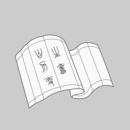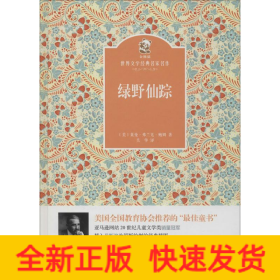
耿村故事选
全新正版 极速发货
¥ 30.32 6.2折 ¥ 49 全新
库存2件
广东广州
认证卖家担保交易快速发货售后保障
作者魏怡 等 编著
出版社知识产权出版社
ISBN9787513043342
出版时间2016-08
装帧平装
开本16开
定价49元
货号1201355370
上书时间2024-06-18
- 最新上架
商品详情
- 品相描述:全新
- 商品描述
-
作者简介
魏怡(1983.7-),石家庄铁道大学外语系讲师,中国社会科学院哲学博士,河北省翻译工作者协会理事。2010-2011年度美国Values & Virtues项目访问学者。出版学术专著《罗斯金美学思想中的宗教观》,另一部《希伯来民间文学文本细读》正在出版。主持参与省厅级课题十余项,在北大核心期刊发表论文5篇,在CSSCI期刊发表文章1篇,在EI源刊(JA)WIETE期刊发表文章1篇。2003年起从事翻译工作,拥有国家翻译专业资格(水平)口笔译证书。出版英汉译著40余部,汉英译著20余部。翻译量达600万字。与商务印书馆等出版社合作。题材涉及军事、金融、农业、宗教、文学、电影、法律、广告、游记、高铁等。被评为2013-2014年度石家庄市青年拔尖人才。获河北省第五届很好翻译成果二等奖。荣获教学质量奖等奖项。
王隽雅(1983.7-),硕士,石家庄铁道大学外语系讲师,主要研究跨文化交际和旅游英语。2005年,本科毕业于河北经贸大学英语语言文学专业。并于2006年赴爱尔兰国立利墨瑞大学(University of Limerick)攻读旅游管理专业(Tourism Management),其间曾在古巴学习、实习,于2008年毕业回国。在国外期间工作学习两年有余,对欧洲宗教文化产生极大的兴趣,并依托专业课课题完成一项民间宗教旅游调查。
目录
Section 1: Legends and Mythologies about the Universe and Human Beings
1. The Giant Creator of the Universe Pangu and the Heaven-repairing Goddess Nvwa
2. Nvwa and the Big Dipper
3. The Rooster and the Sun
4. Another Version of Multiple Suns
5. The Origin of Weeds
6. Why Does the Moon Shine?
7. Why Do People Have Three Skin Colors?
8. Why Are Human Beings Mortal?
Section 2: About Historical Figures (I)
9. Bole and the Fabled Qianlima ( 千里马; “thousand-li horse”)
10. Lu Ban Learning the Technical Skill of Woodworking
11.Zhang Yi Got Everything from Nothing with a Silken Tongue
12. The Story between Cao Zhi and Cao Pi
13. Three Stories about Zhuge Liang
14. Zuo Si and Paper Became Expensive in Luoyang
15. Hua Mulan’s Marriage (Unoffi Historical Story)
16. Emperor Taizong of Tang Dynasty and the Messenger from Tibetan Regime in
Ancient China
17. Several Legends about Lord Bao
18. Two Legends about Su Dongpo
19. The Legend about the Fictional Tiger-fighting Hero, Wu Song, Learning Skills
20. The Origin of Gengcun Village—Zhu Yuanzhang (Hongwu Emperor) Conferred Titles of Nobility on King of Geng
21. The Legend of Li Shizhen Selling Quack Medicine to Help Others
Section 3: About Historical Figures (II)
22. Kangxi Emperor and Lord Shi
23. Yongzheng Emperor Banned Gambling
24. Qianlong Emperor and Fortune-telling
25. Qianlong Emperor and a Couplet
26. Qianlong Emperor and His Riddle
27. Heshen, Shen Rulin and Hu Pinsan
28. Heshen Repaired the Road Used by the Emperor
29. The Story of Pu Songling Opening a Teahouse
30. Zheng Banqiao’s Two Visits at the Same Restaurant
31. Zheng Banqiao’s Visit at a Temple
32. Zheng Banqiao Took a Boat
33. The Magic Painting of Meng Luling
34. A Story about Wang Duo and His Son
Section 4: Buddhist and Taoist Stories
35. The Monkey King Teases the Black Dragon
36. Li Jing at Chentang Pass Burned the Temple
37. Bai Mudan Outwitted Lü Dongbin
38. Lü Dongbin Enlightened “Three Men of Virtue”
39. The Great Immortal Tieguai Li
40. Thousand-armed Guanyin
41. Zhao Gongming as the God of Fortune
Section 5: Life Folktales
42. Jin Yunu
43. A Tale of a Jade Bracelet
44. A Pearl Shirt
45. Xiucai’s Daughter Repelling the Suitor with Wit
46.The Story of Giving out a Treasured Object
47. A Princess Choosing Her Husband
48. Being Blessed Because of a Good Heart
49. Three Unfilial Couples
50. Zhang Er Selling Noodles
51. A Murder Mystery of a Strange Flower
52. A Lawsuit about a Horse
53. Rooster’s Egg
54. Daredevil Ma
55. Fake Silver Ingots
56. An Old Teapot
57. A Prodigal Who Returns Is More Precious than Gold
内容摘要
国家首批非物质文化遗产项目河北省藁城市“耿村故事”是民间口头文学瑰宝,整个村落无论男女老少都会讲故事,形成了蔚为壮观的文化群落现象。耿村故事中有人们脍炙人口的盘古开天地、女娲造人、千手观音、伯乐与千里马、孟姜女哭长城、梁山伯与祝英台等民间故事,但这些故事与人们耳熟能详的故事并不接近相同。本书内容涉及神话、人物传说、四大传说、佛道传说、风俗习惯、生活故事等,希望推动耿村故事走出国门,成为源自当代中国、风靡全世界的“一千零一夜”。
精彩内容
As one of the national intangible cultural heritage items, Gengcun stories
are undoubtedly a gem of folk oral literature and an exemplar of traditional folk
culture. Gengcun, a village located in north China, presents us with a unique
cultural phenomenon: almost all the residents of various ages in this small
village can tell stories. Those stories they tell range from ancient mythologies
and legends, historical figures, love stories, religious legends and cultural norms
and customs to animal fables and plant stories. Such phenomenon is rare not
only in China, but also in the world. It is considered as modern China’s One
Thousand and One Nights attracting folklorists, artists, performers, scholars
and researchers from China and many other countries. This remarkable
phenomenon stood out as early as in 1986 during the national general
investigation of folk literature. By the year 2004, eleven rounds of large-scale
investigations and collections of stories in the village had been conducted. 230
male and female story-tellers had been discovered. There are till now 15 books
on Gengcun stories and related academic research, totaling 11.23 million
characters. At the seminar about the story-telling groups at Gengcun village
and their works convened in 1988, hundreds of delegates from the United
States, France, Germany, Japan and other countries came and investigated
this unique phenomenon of local and folk culture. Most of them established
long-term relations and carried out exchange programs with Gengcun
village. Among them, the most active and inspiring one should be the Nu Wa
Storytelling Delegation and Eth-Noh-Tec from San Francisco.
As the key translator of the 119 selected Gengcun stories in this book,
I got to know two members of this group coincidentally in 2015 when they
again went to Gengcun to collect stories and exchange with the local people.
It was my great honor to meet Robert Kikuchi-Yngojo and Nancy Wang. I also
got to know some others from this delegation such as Doris, Doris’ daughter
Kirsten, Luanda, Melinda and Elaine. We both wished we could have met with
each other earlier after we realized that both of us have a plan to publish those
Gengcun stories since the original oral form of its transmission is limited both
in time and space. This idea inspired me to finally get started and translate the
stories. The original texts I chose are from the book Gengcun’s One Thousand
and One Nights in six volumes
— 没有更多了 —












以下为对购买帮助不大的评价